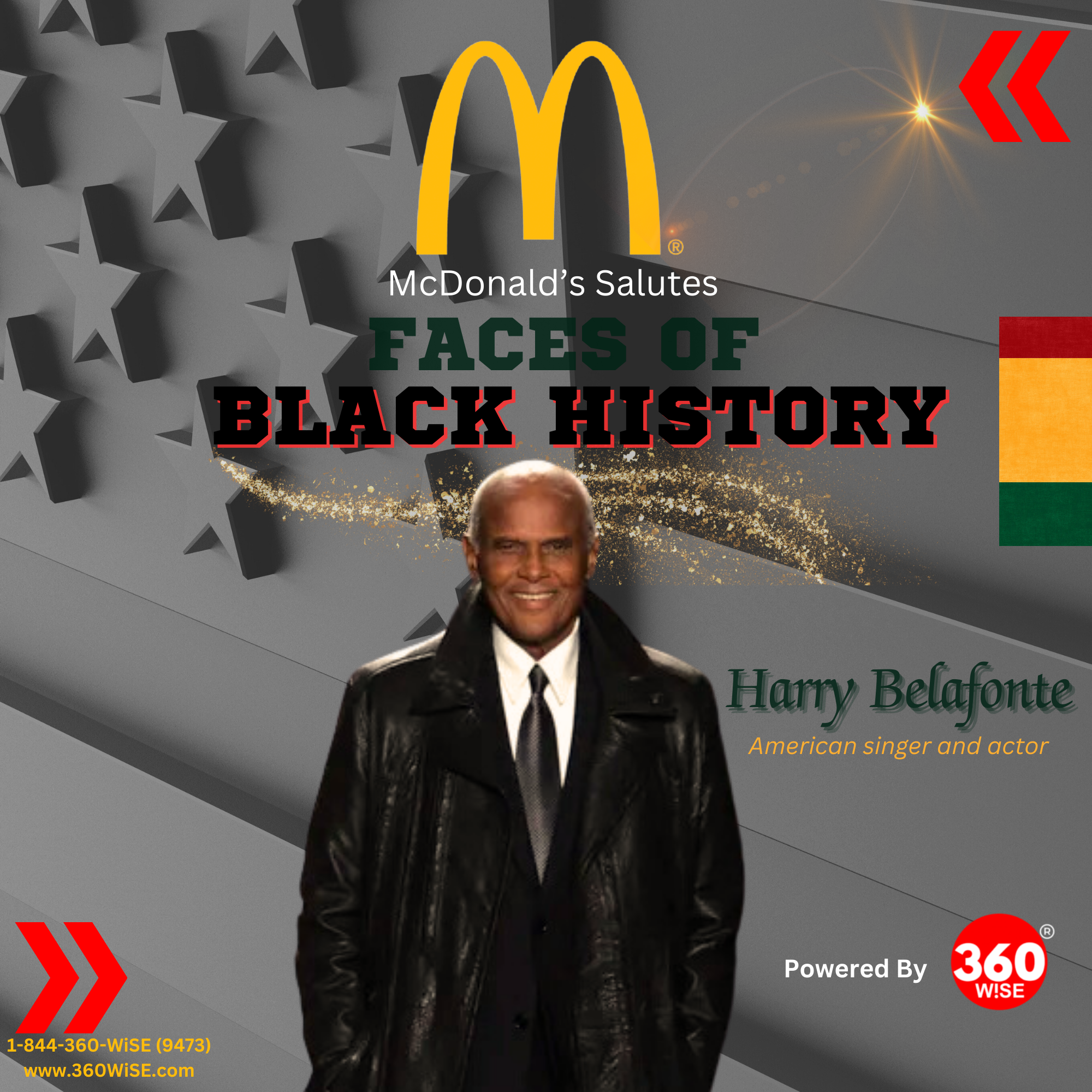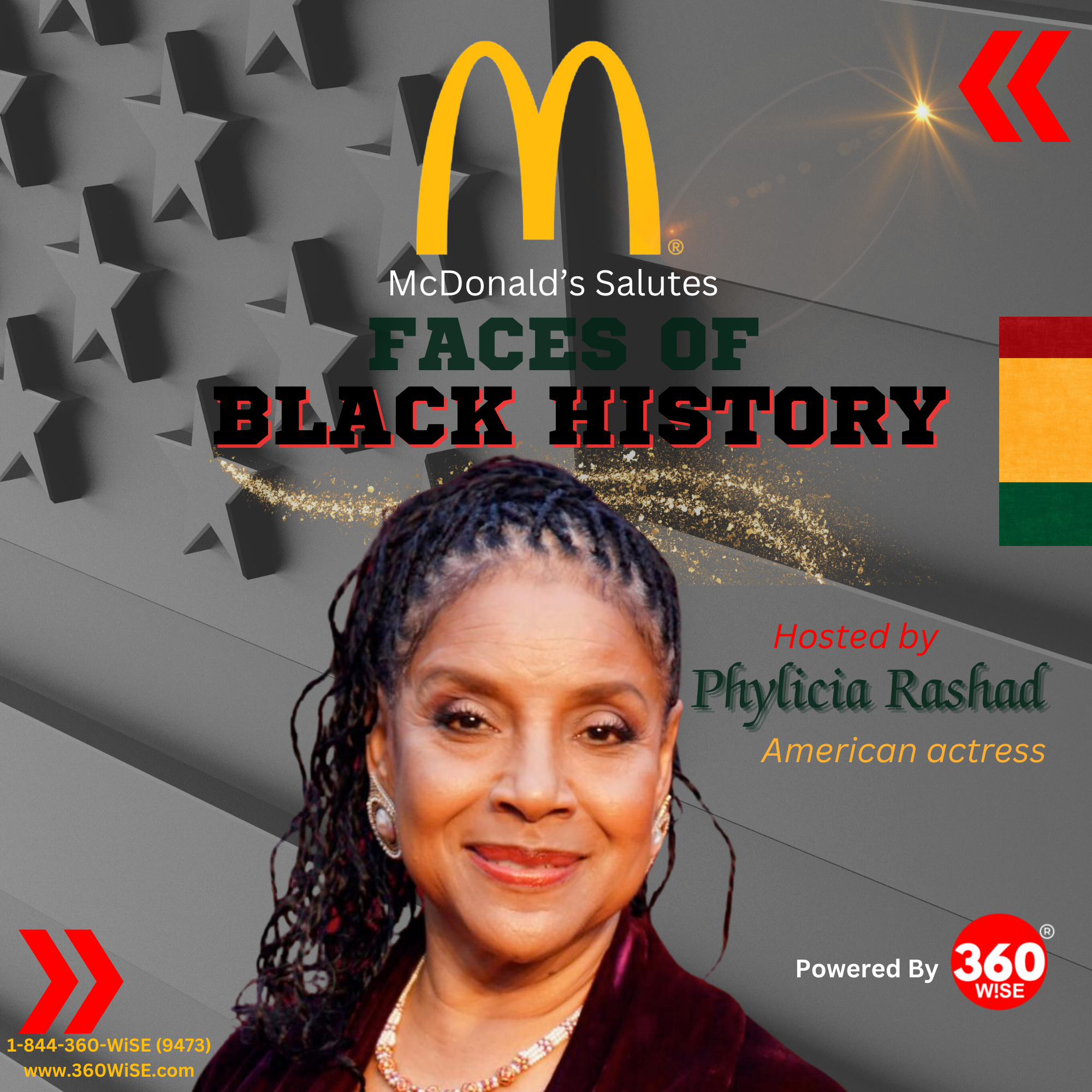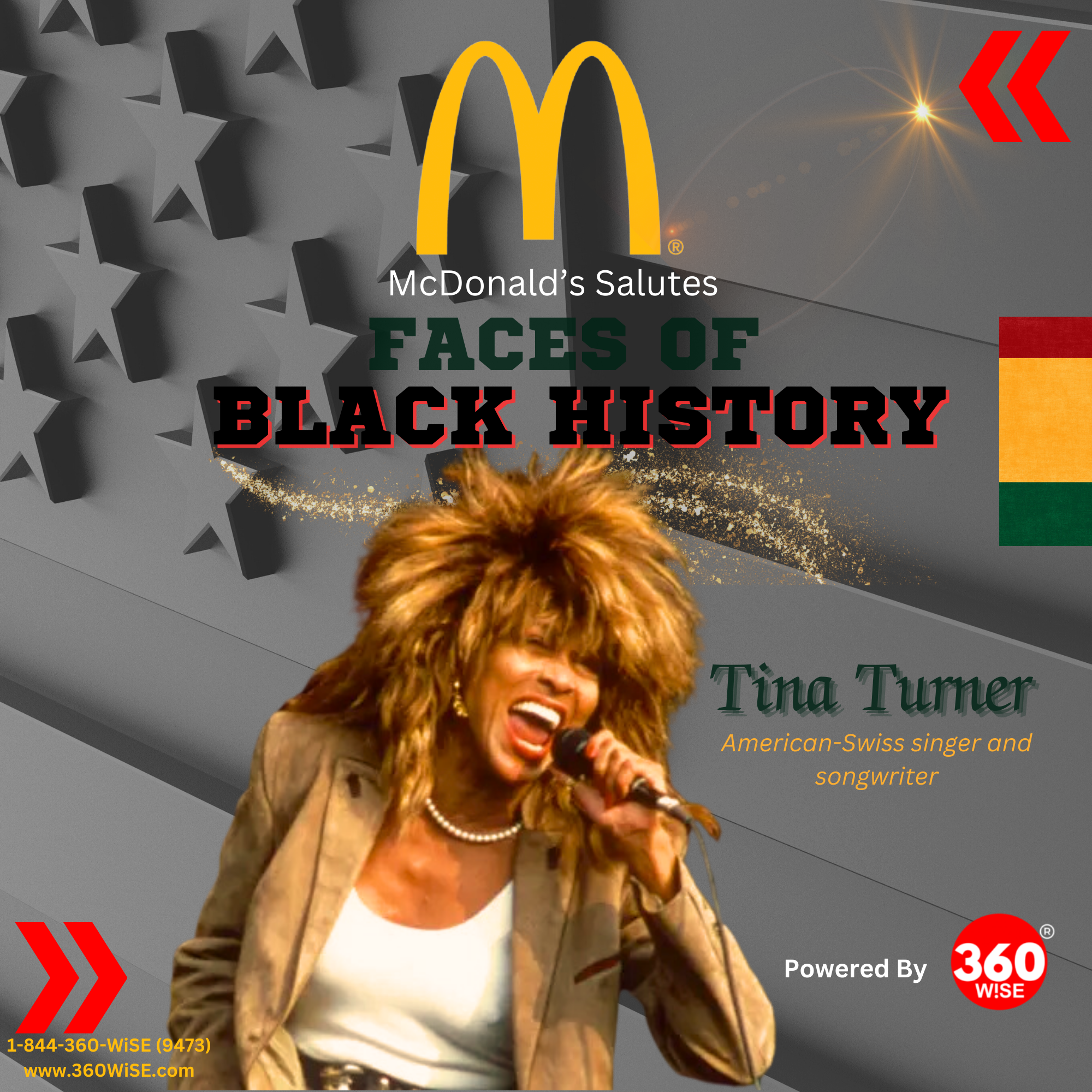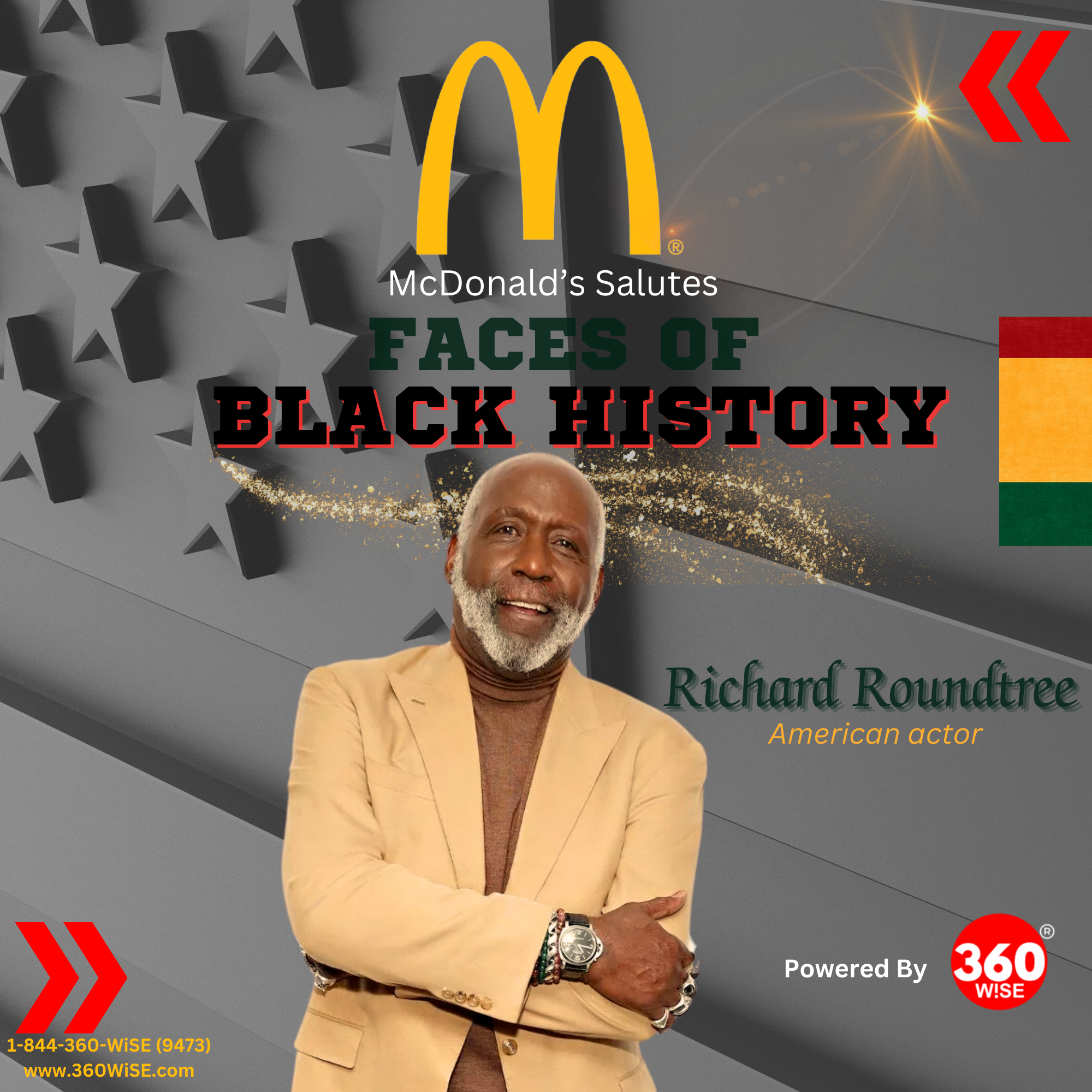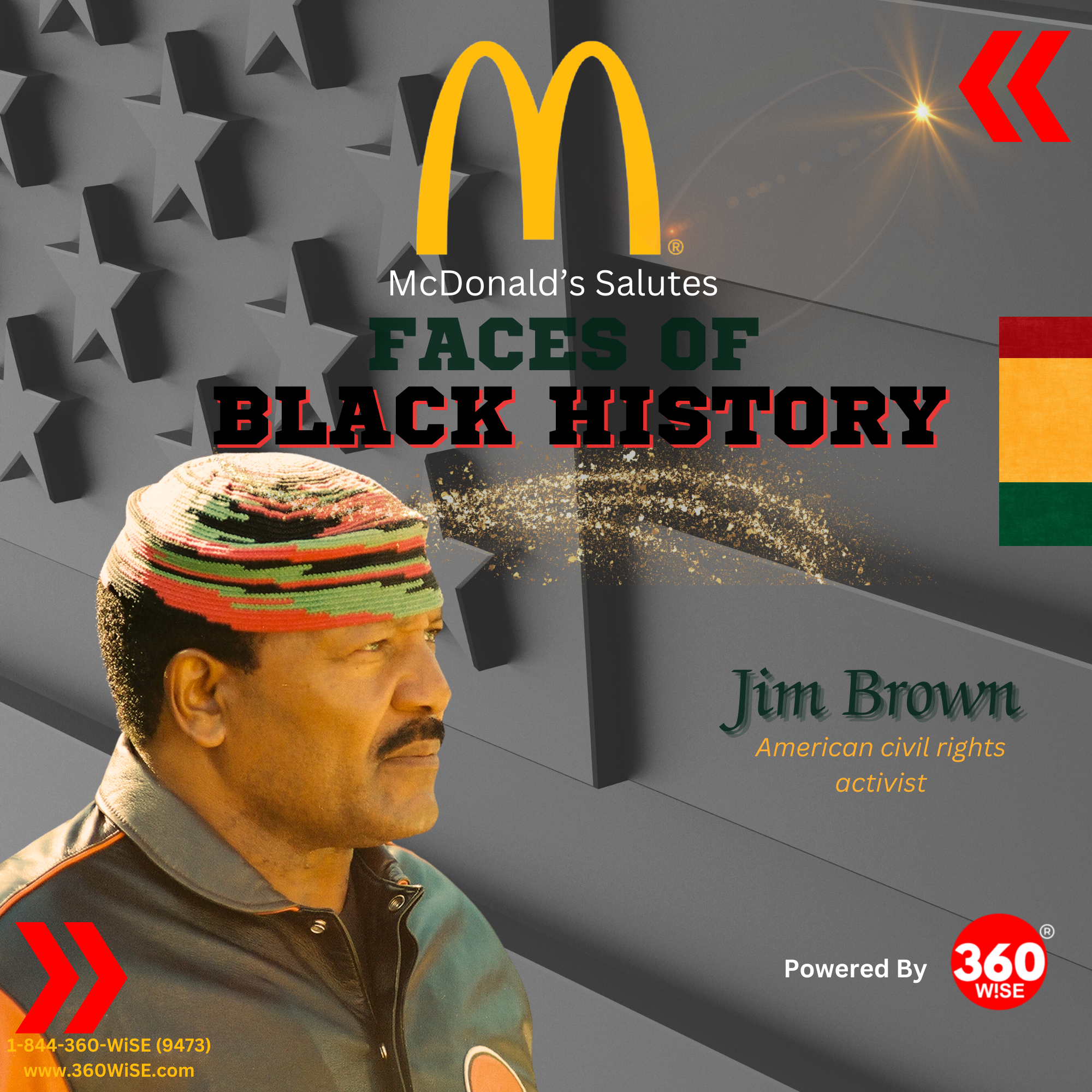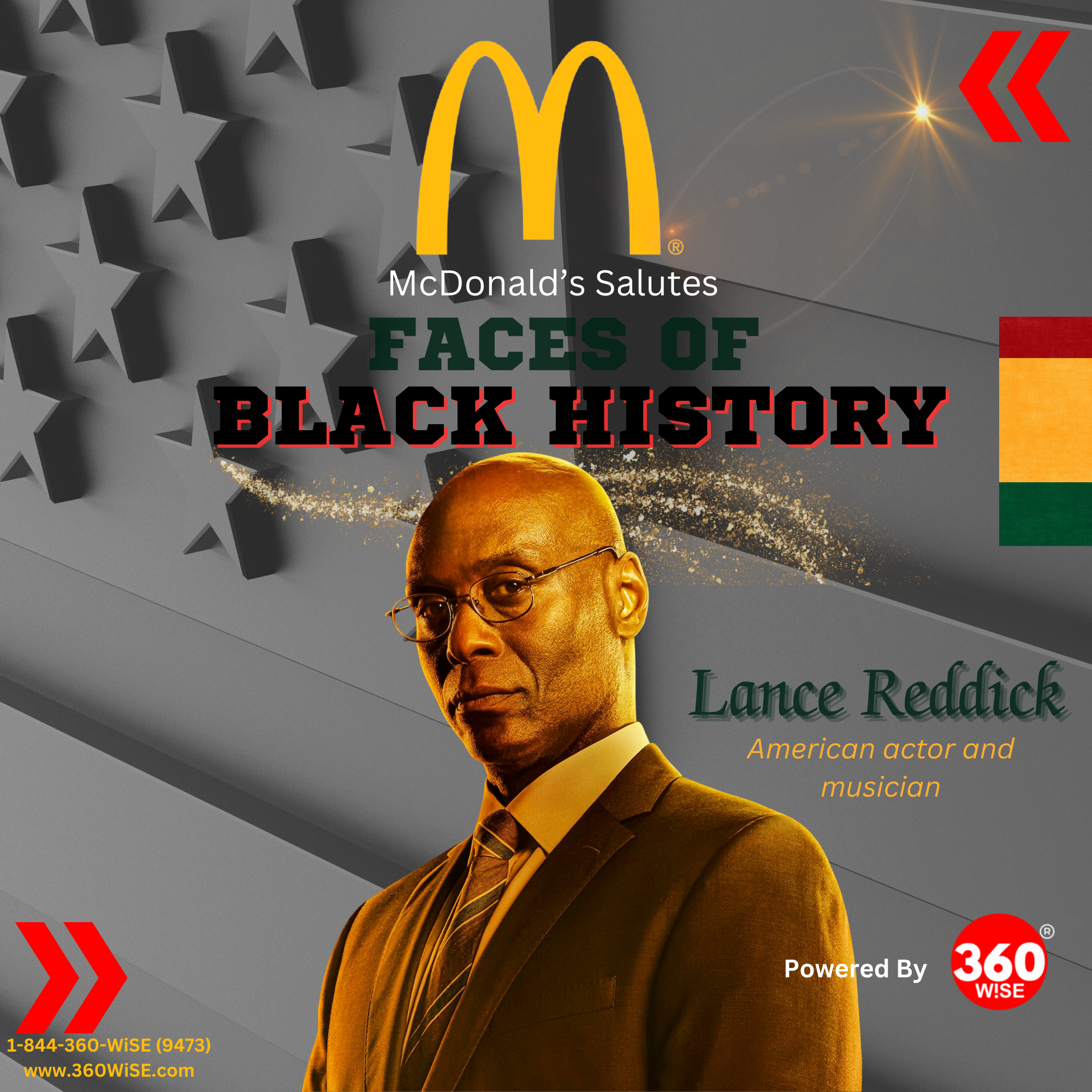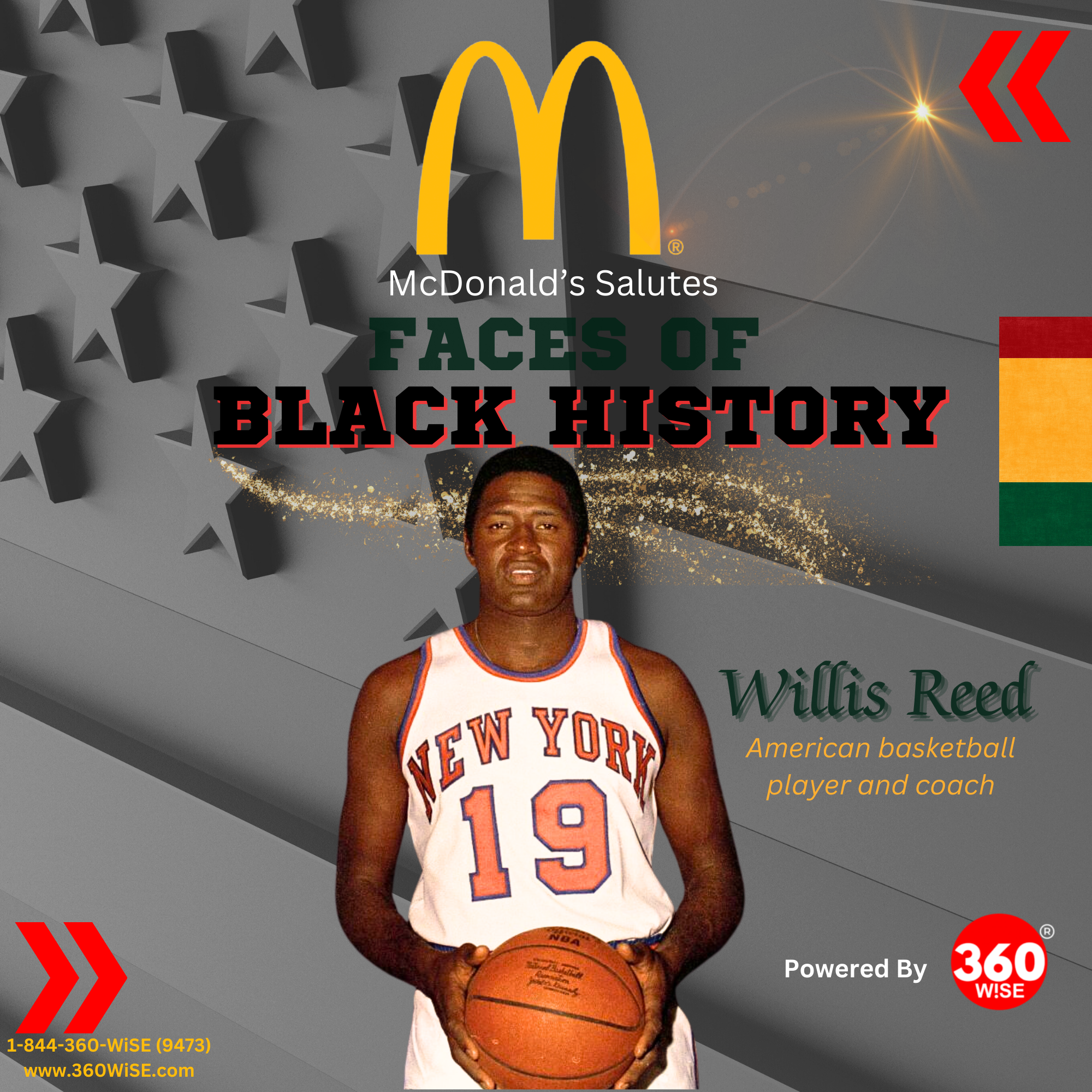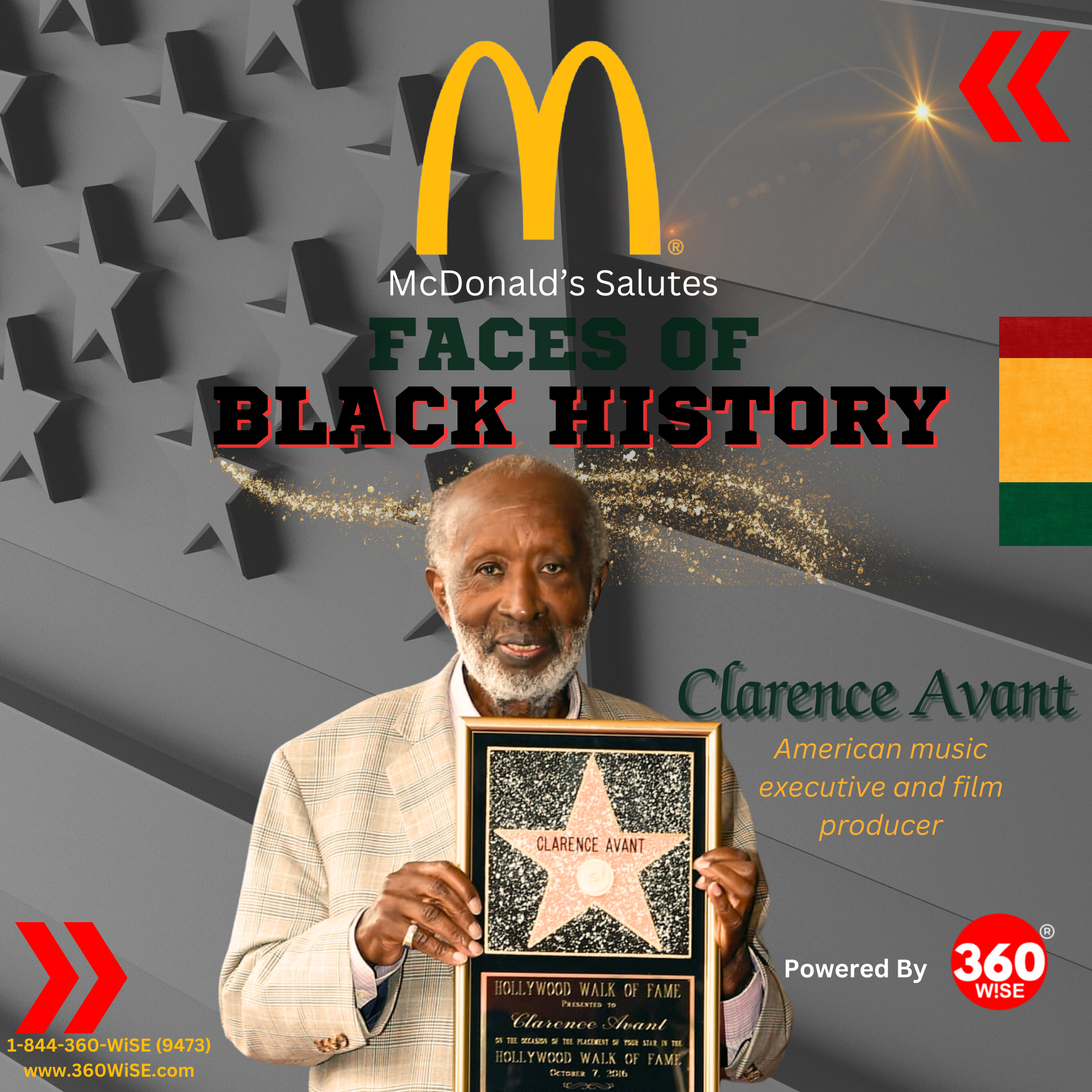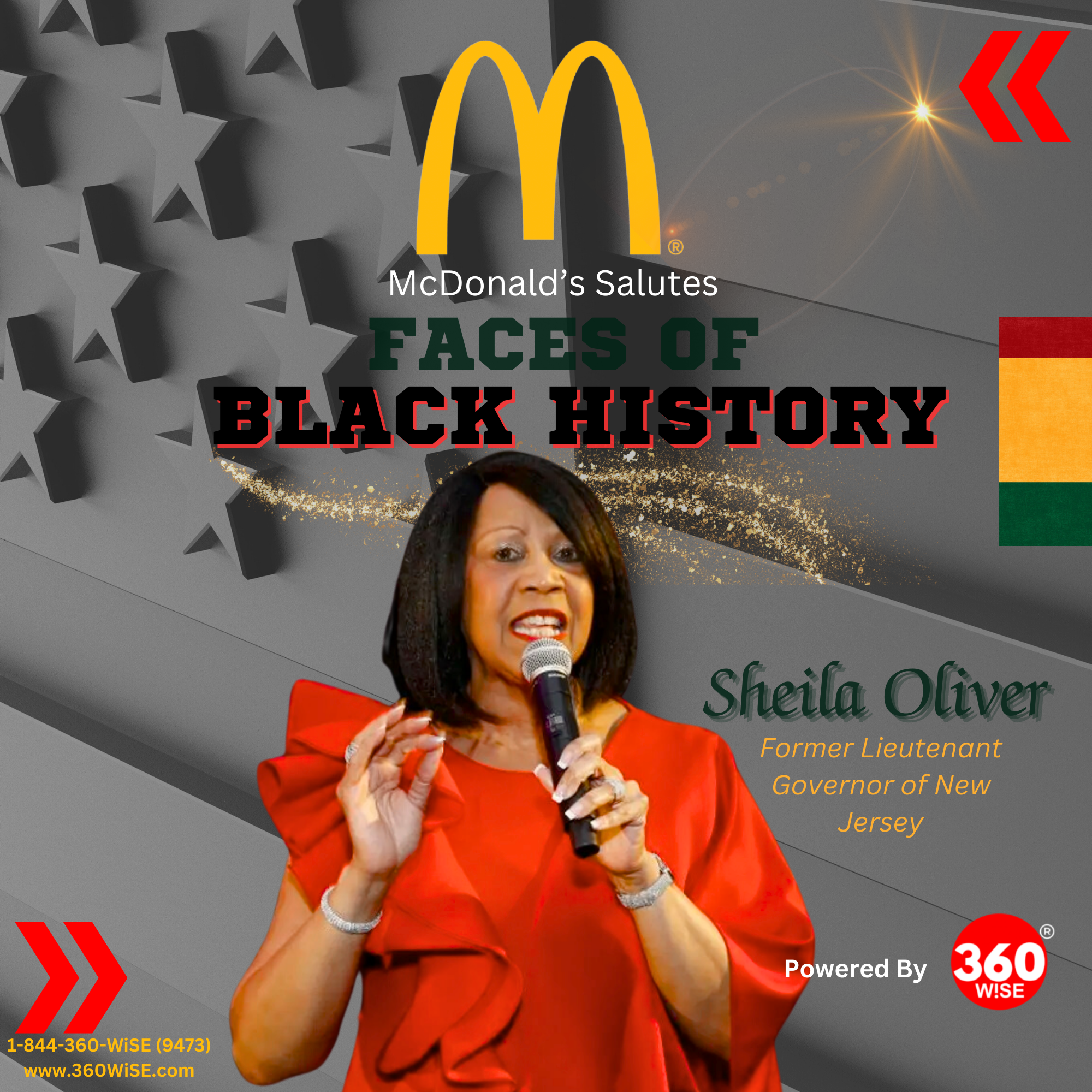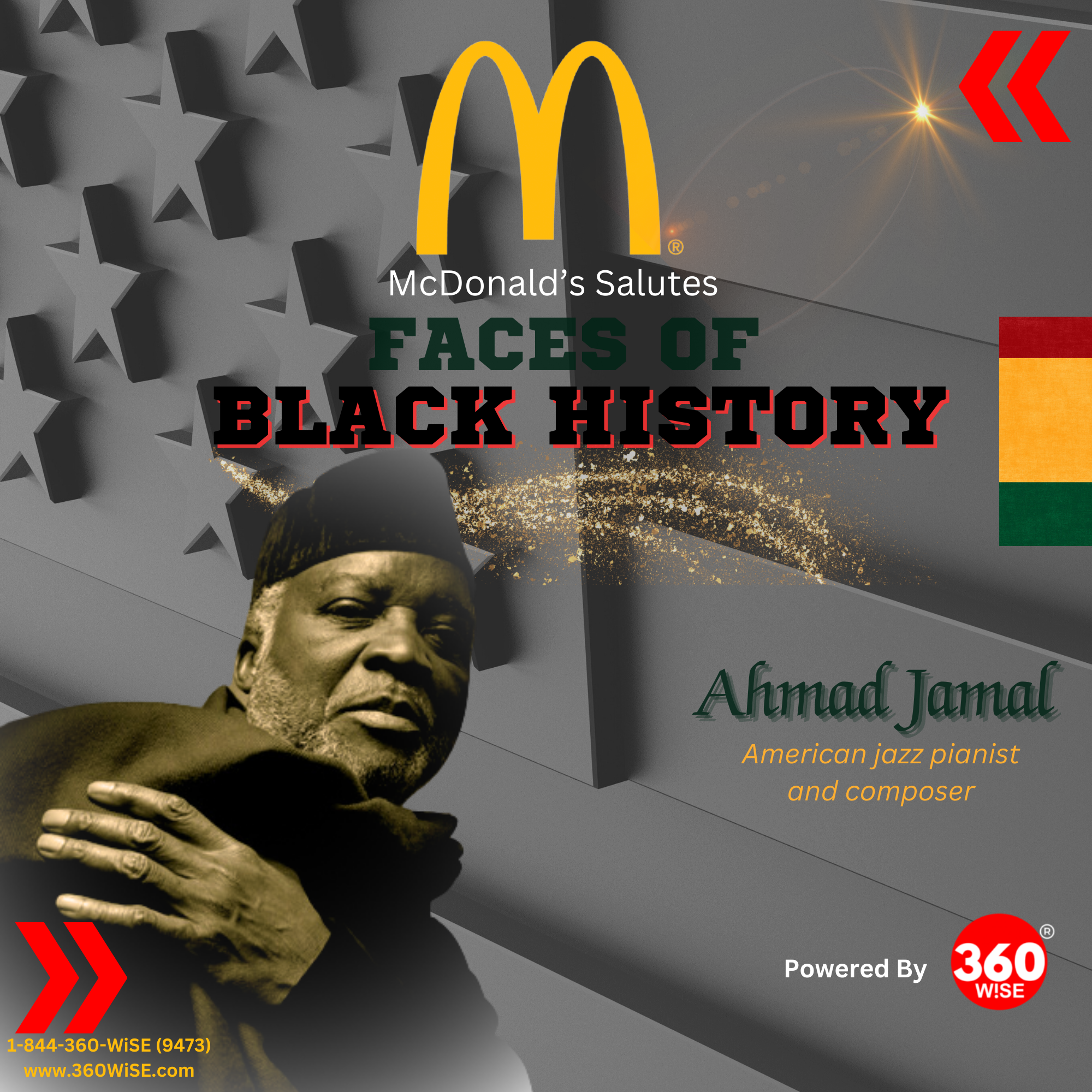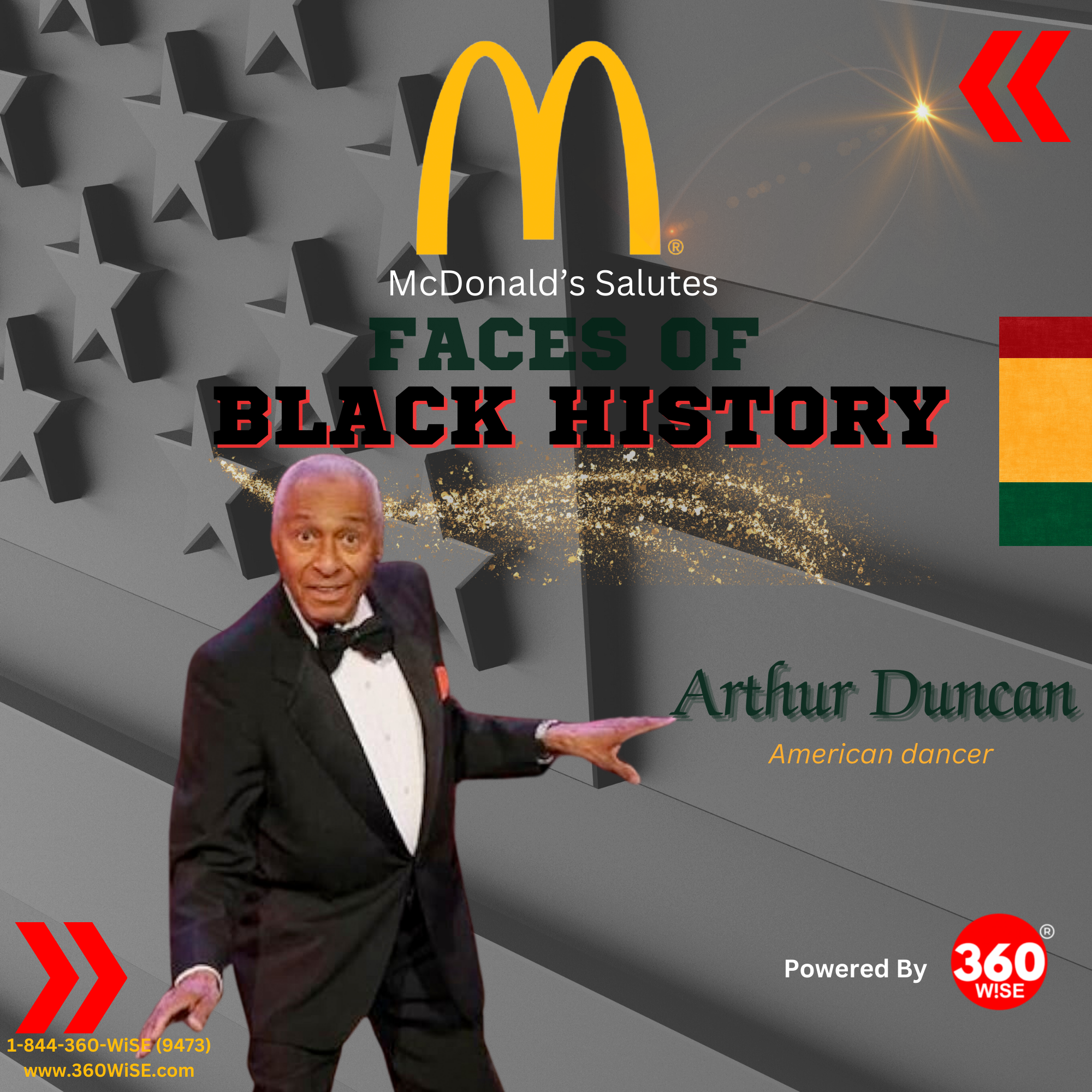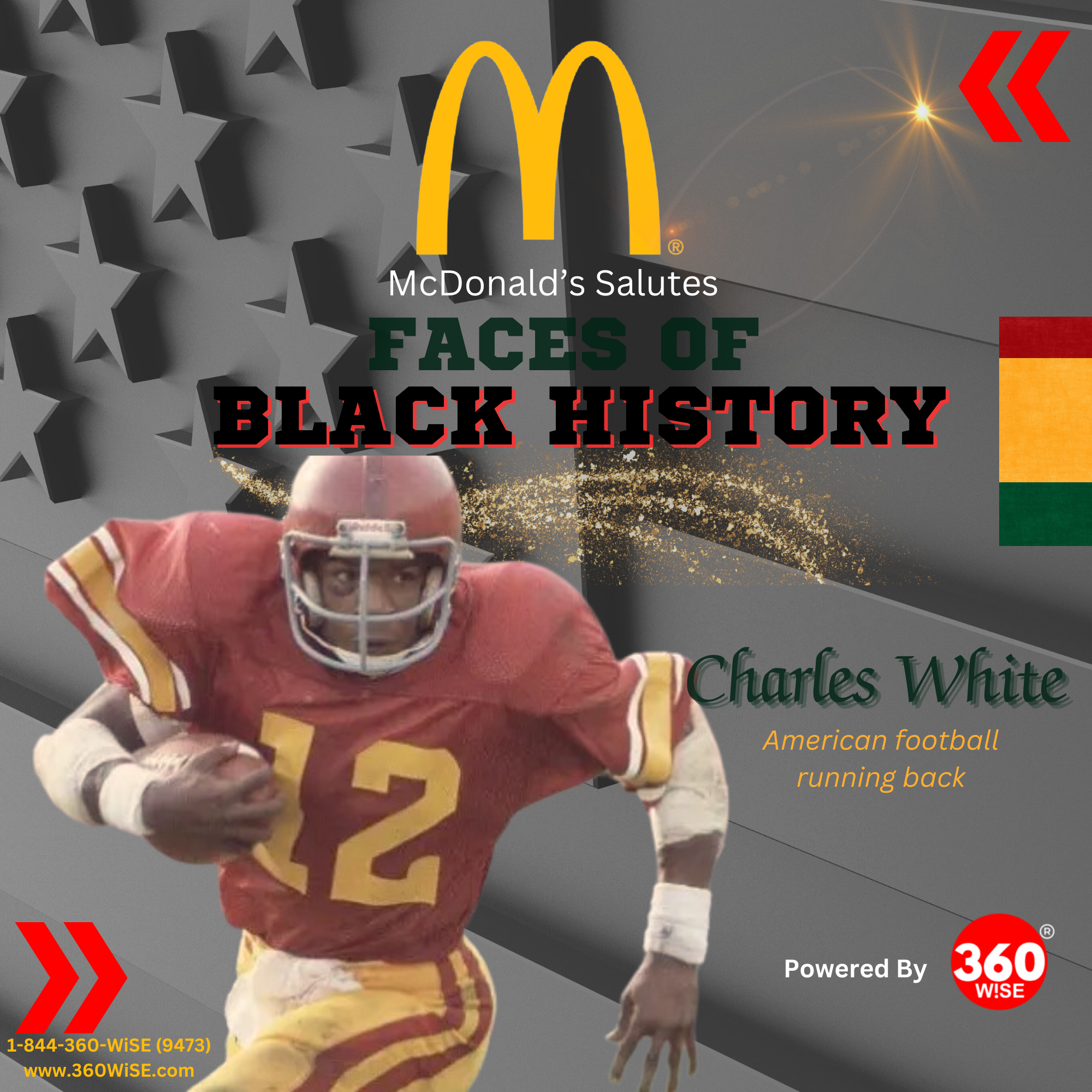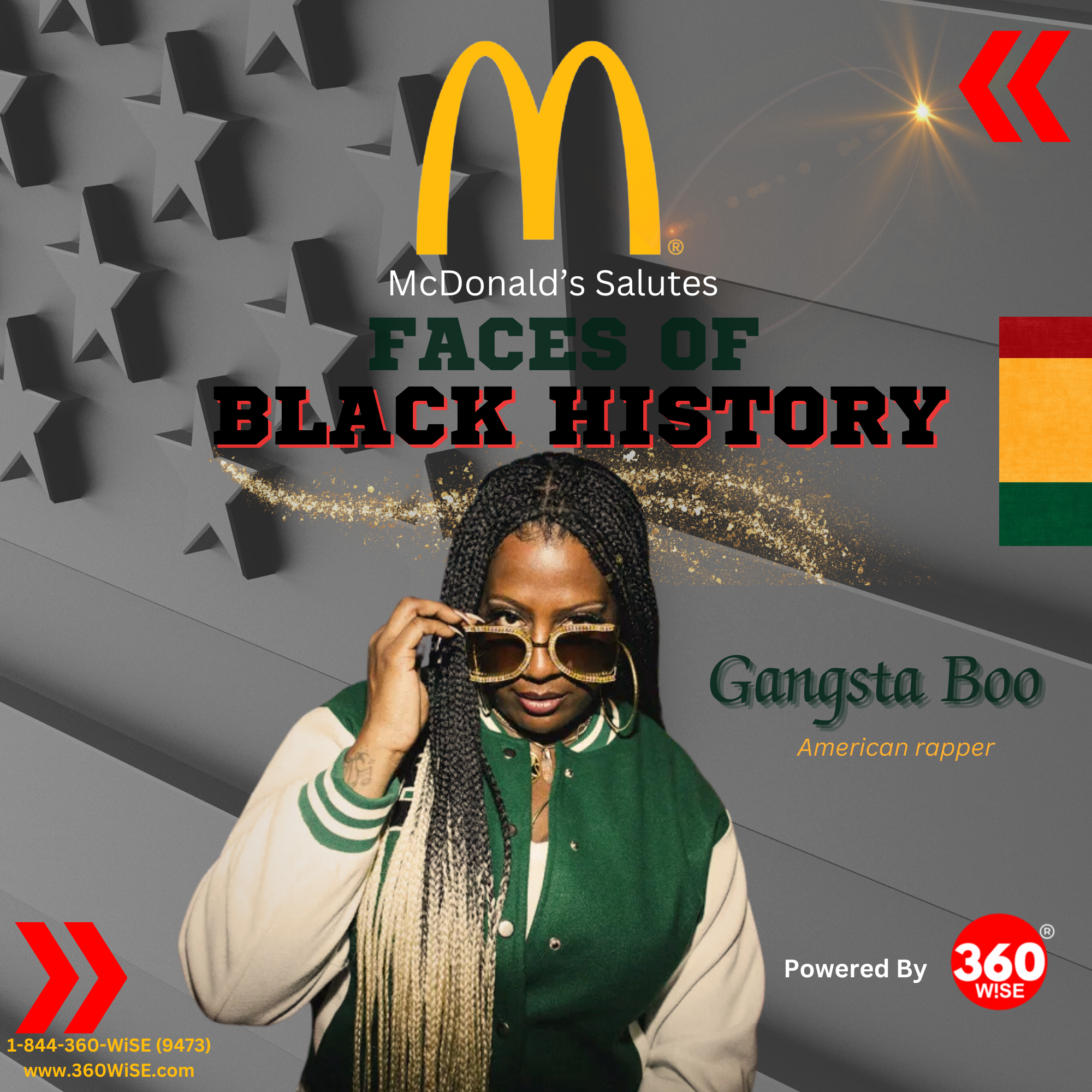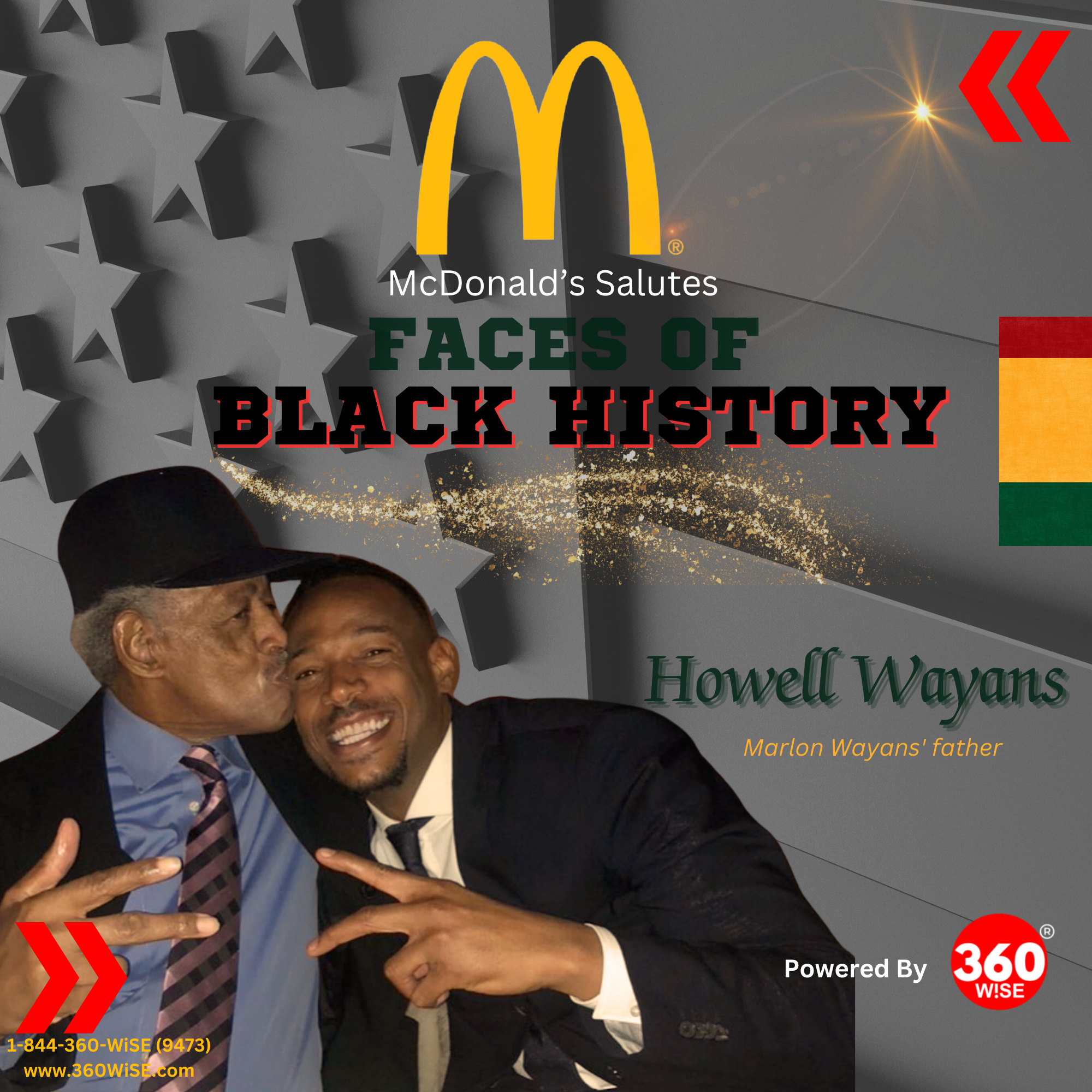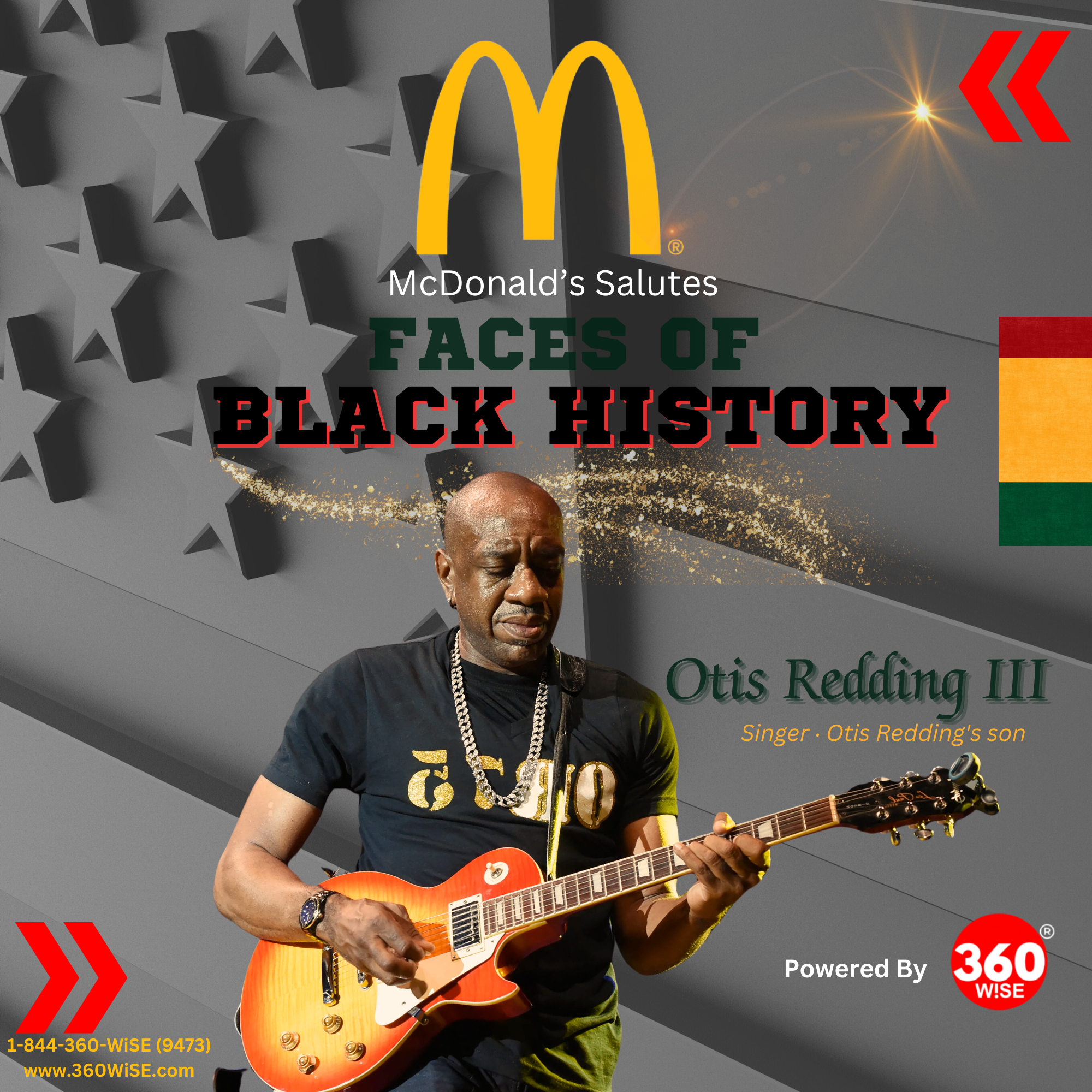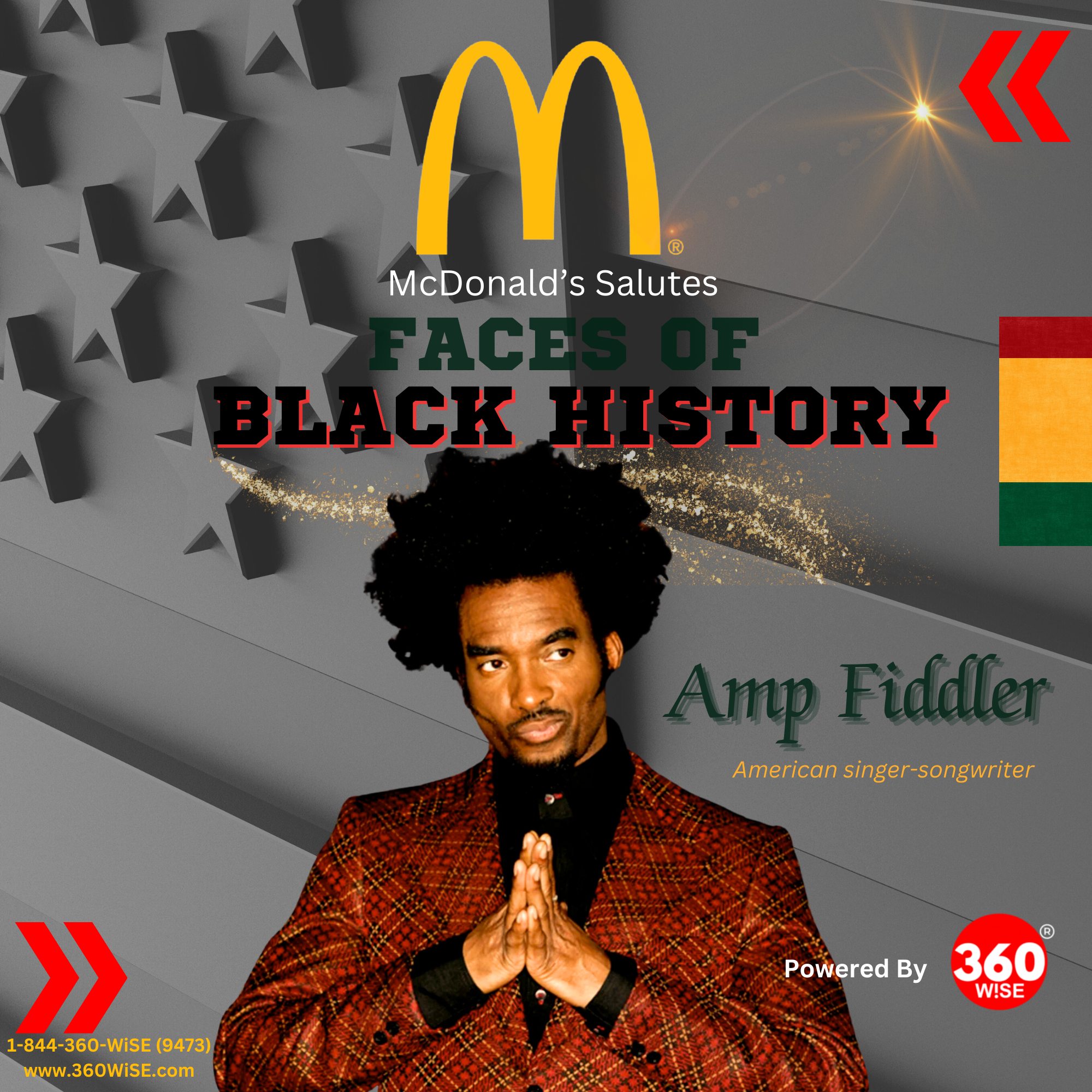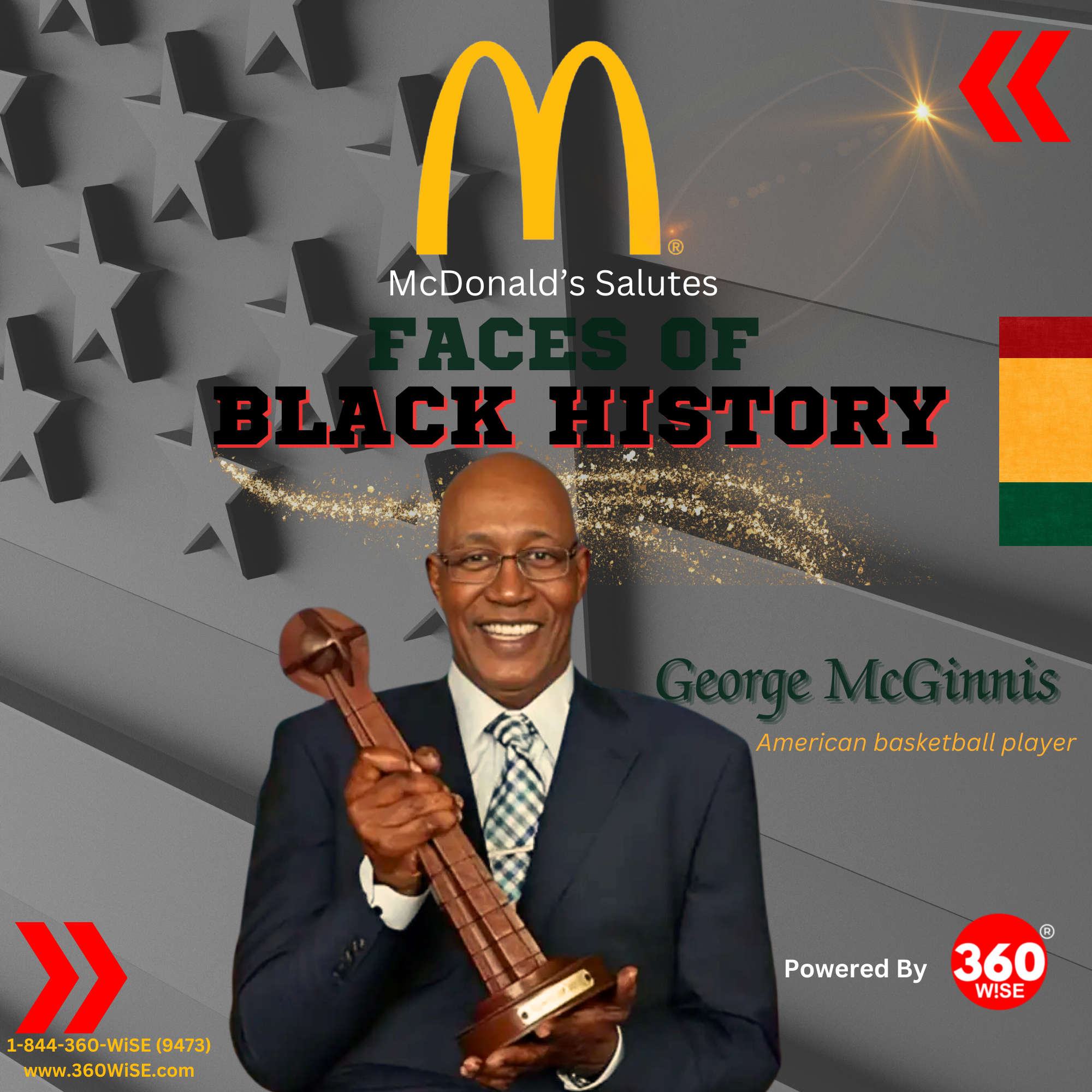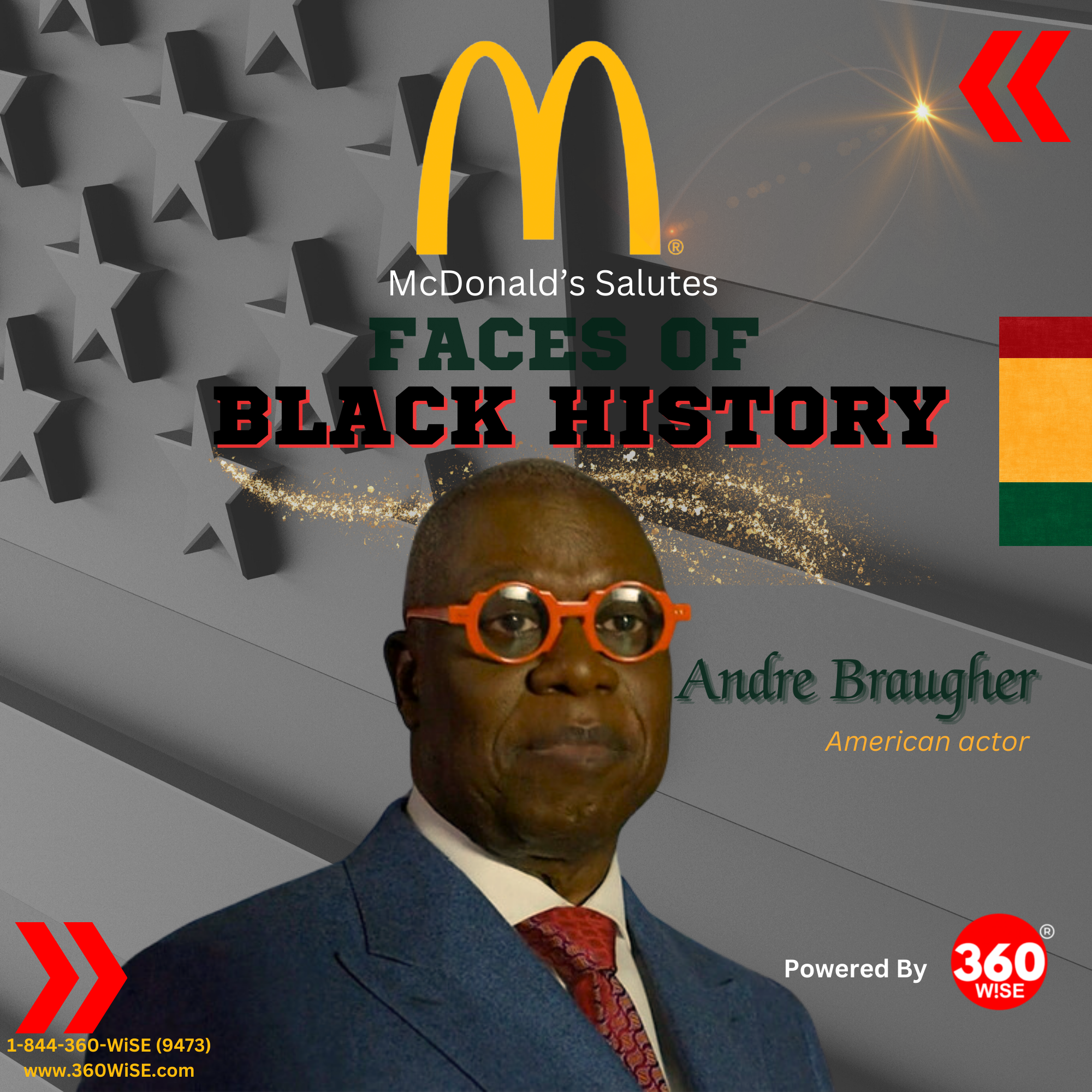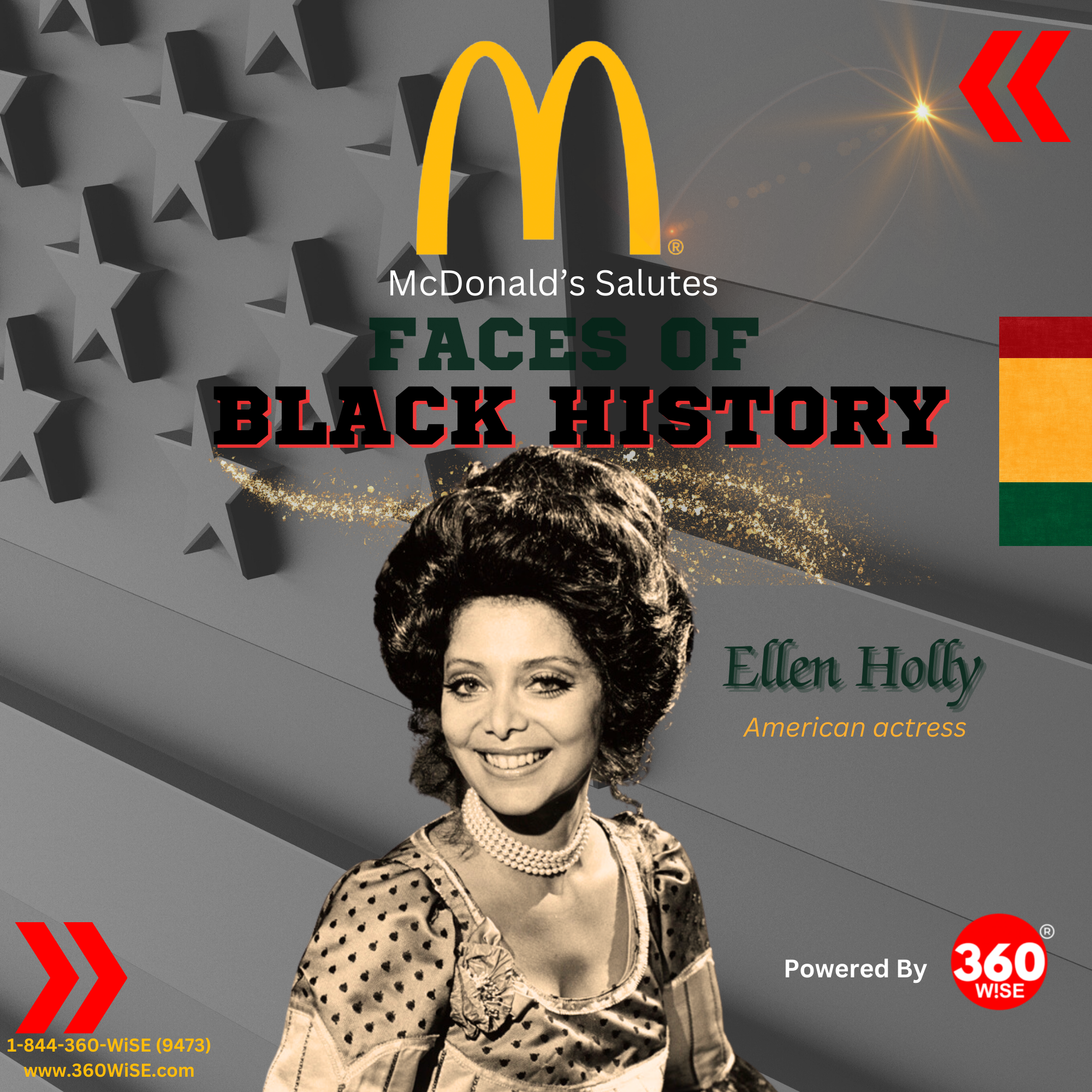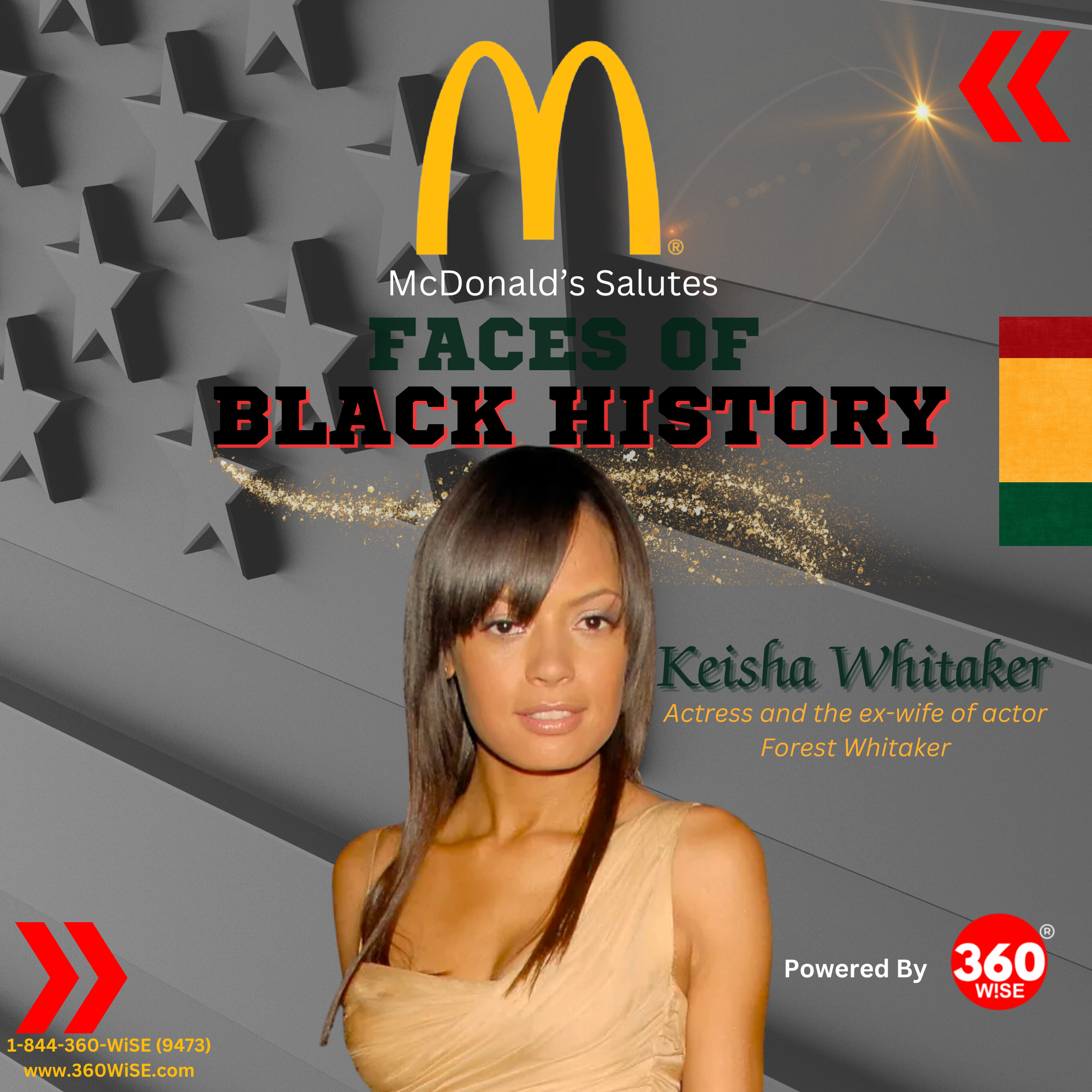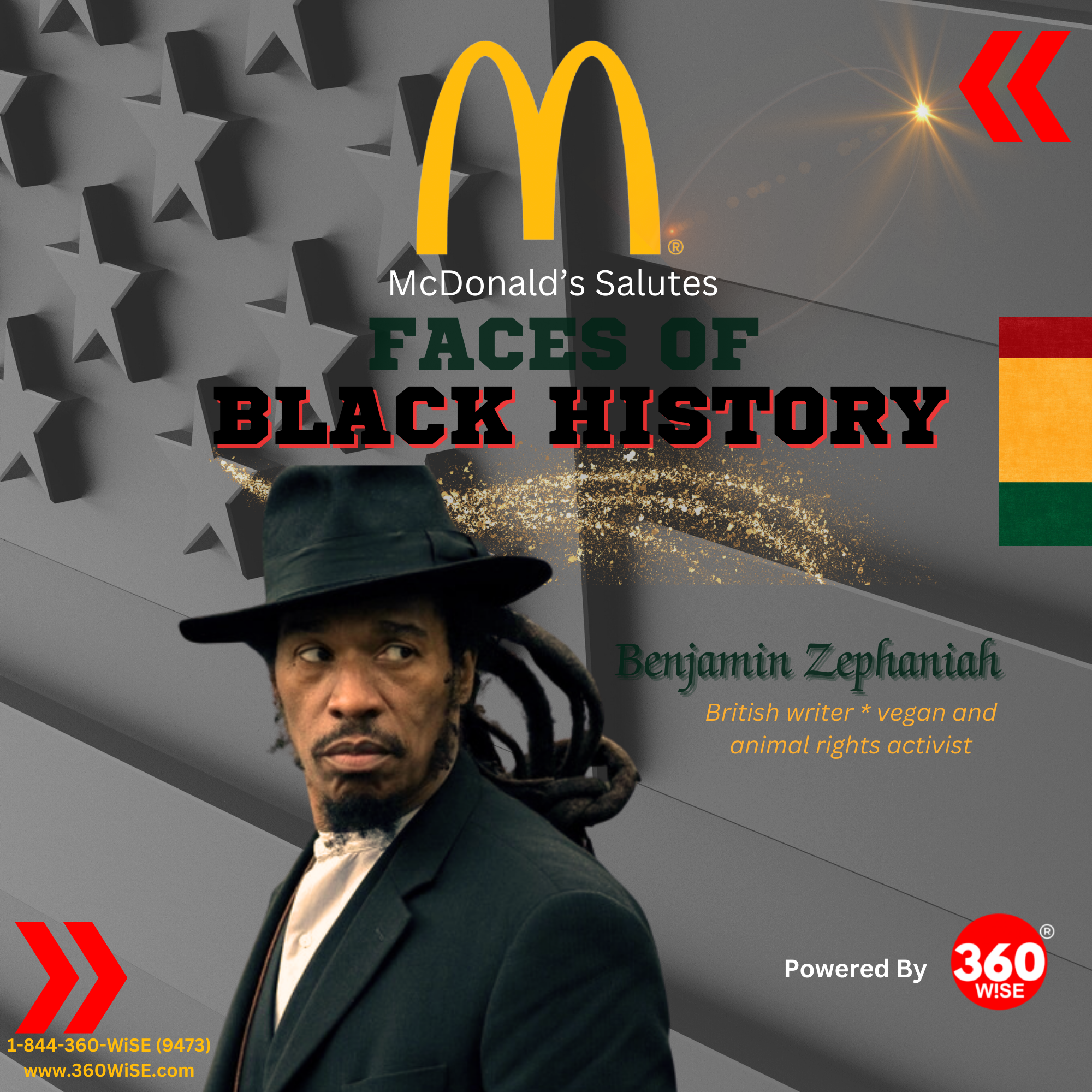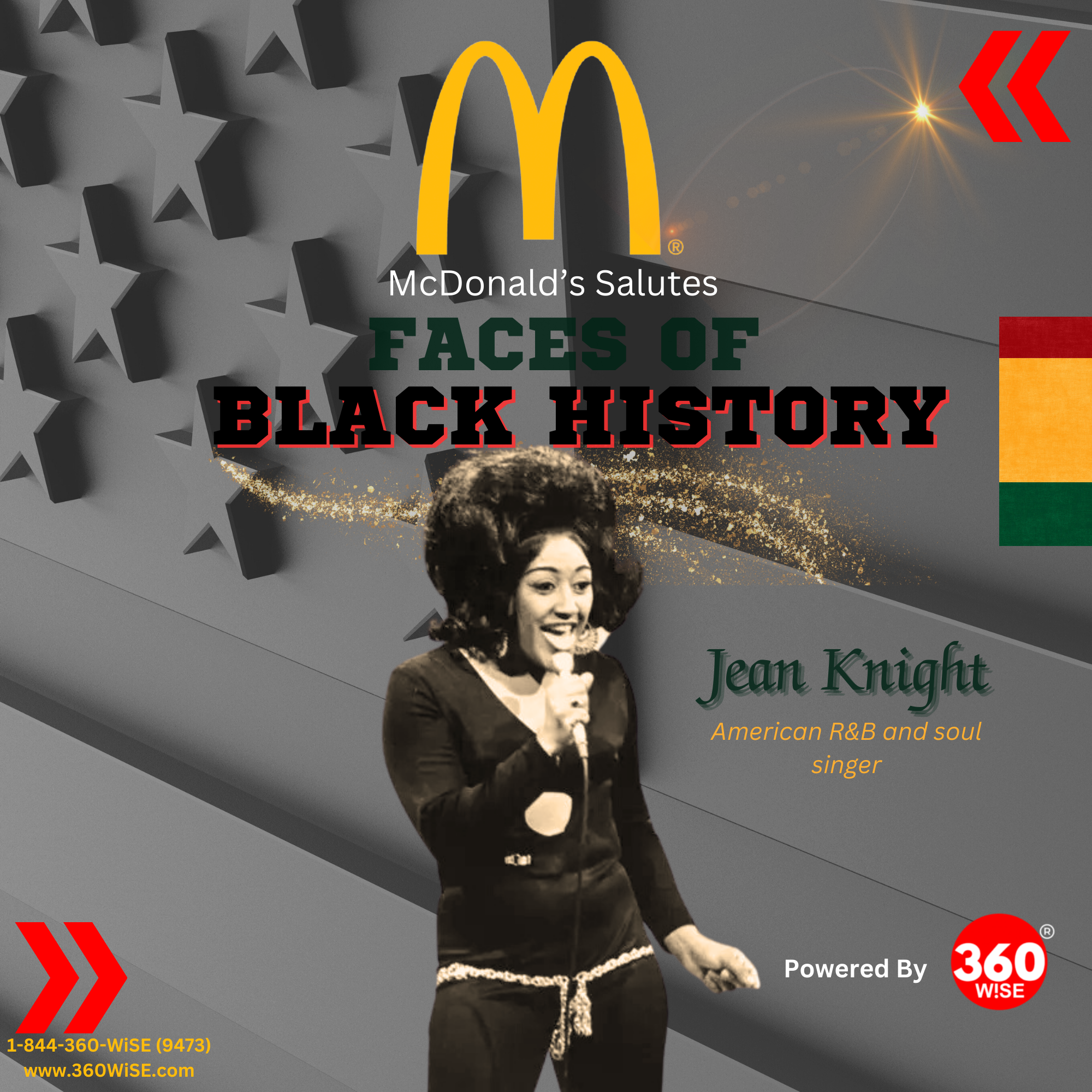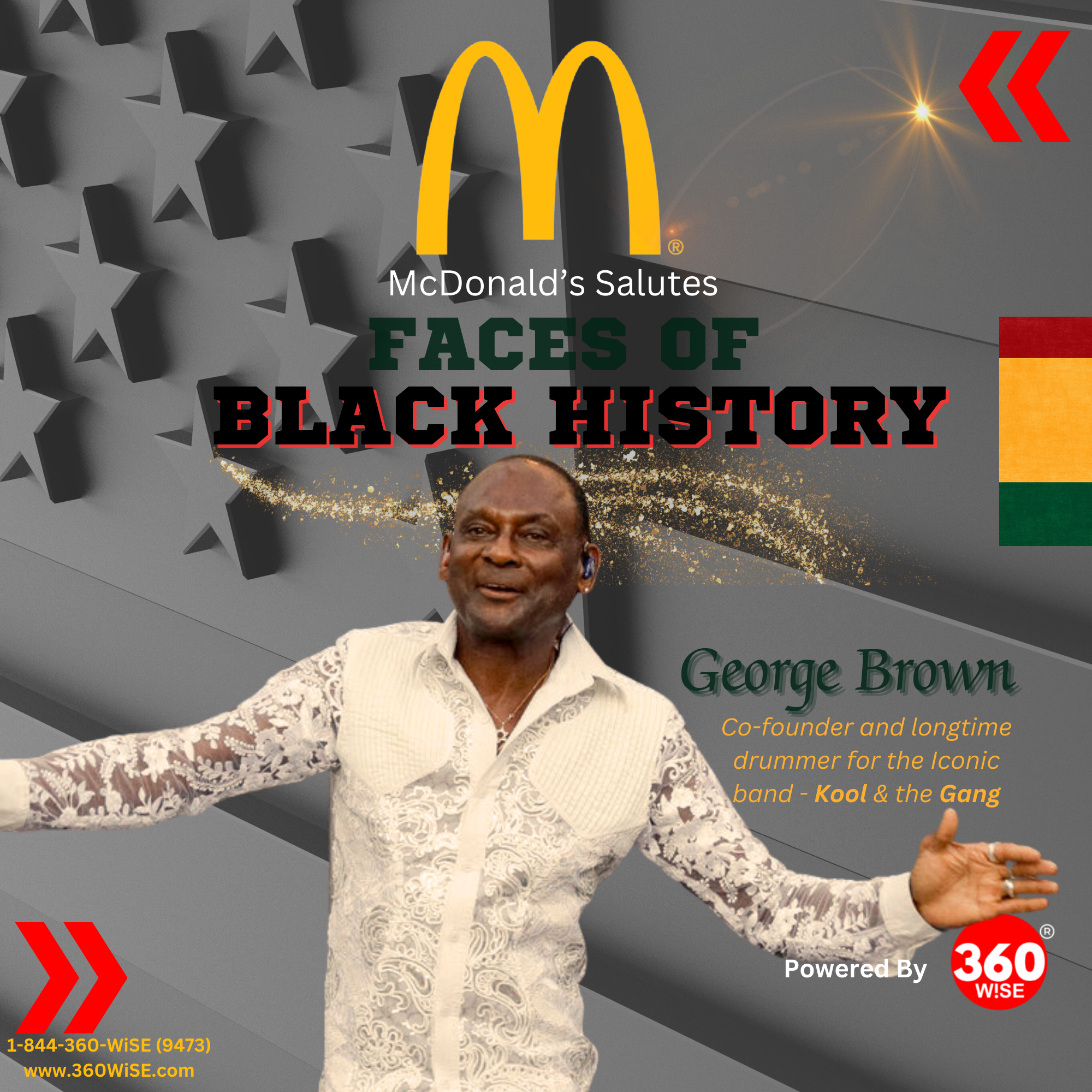 Salutes Faces of History Back To McDonald's Salutes Hispanic History
Salutes Faces of History Back To McDonald's Salutes Hispanic History
Carlton Pearson
THE MOMENT
An In-depth Introduction to the Iconic Carlton Pearson: A Revolutionary Spiritual Leader
I am excited to share this in-depth introduction of Carlton Pearson, a man whose life and work have had a profound impact on many. As a spiritual leader, author, vocalist, and speaker, he has touched countless lives through his unique blend of theology and activism. His journey, marked by faith, conviction, and resilience, is a testament to the power of belief and the potential for change.
Pearson’s life story is a roller coaster of highs and lows, triumphs and challenges. At the pinnacle of his career, he led one of the largest, most influential Pentecostal churches in America. But he also faced tremendous opposition and personal trials that tested his faith and resolve. Despite it all, he remained steadfast, becoming a beacon of light and hope for many.
Carlton Pearson is more than a spiritual leader. He is a change-maker, a trailblazer, and a visionary. His life is a testament to the enduring power of faith, the transformative potential of a radical idea, and the profound impact one individual can have on society.
Quick Facts about Carlton Pearson
Born on March 19, 1953, in San Diego, California, Carlton Pearson grew up in a deeply religious family. His father and grandfather were both Pentecostal preachers, and Pearson himself began preaching at a young age. He attended Oral Roberts University, a charismatic Christian university in Tulsa, Oklahoma, where he forged a close relationship with its founder, televangelist Oral Roberts.
Pearson founded the Higher Dimensions Evangelistic Center in 1981, which grew to become one of the largest churches in Tulsa. His weekly televised service, “Ever Increasing Faith,” reached millions worldwide. He was also a founding member of the Gospel Music Workshop of America, and his gospel albums earned him several Stellar Awards.
However, his career took a dramatic turn in the late 1990s when he declared his belief in universal reconciliation – the idea that everyone will eventually be saved, regardless of their actions or beliefs in this life. This controversial stance led to a significant decline in his congregation and his eventual excommunication from the Pentecostal church.
Early Life of Carlton Pearson
As we delve deeper into the early life of Carlton Pearson, it becomes clear that his spiritual journey was deeply influenced by his upbringing. Raised in a devout Pentecostal family, Pearson’s faith was an integral part of his identity from a young age. His father and grandfather were both ministers, and Pearson himself began preaching when he was just a teenager.
Pearson’s spiritual journey took a significant turn when he attended Oral Roberts University. Here, he developed a close relationship with the university’s founder, Oral Roberts, who would become a significant influence in his life. Pearson served as an associate evangelist in Roberts’ ministry, traveling the world and preaching to thousands.
However, Pearson’s time at the university was also marked by struggle and self-doubt. He grappled with the strict, conservative theology of his upbringing and began questioning the teachings of his faith. This period of introspection and questioning would pave the way for his later theological evolution.
Carlton Pearson’s Impact on Black History
Understanding Carlton Pearson’s impact on Black history involves acknowledging his role in bridging the gap between religious communities and the civil rights movement. As a Black spiritual leader, Pearson was acutely aware of the struggles faced by his community. He used his platform to address these issues, advocating for equality and justice.
Pearson became a prominent figure in the civil rights movement, using his influence to promote societal change. He worked closely with other leaders, such as Jesse Jackson, to press for reforms. His church became a hub for activism, with Pearson using his sermons to address issues of racism and inequality.
Pearson’s advocacy extended beyond the pulpit. He was instrumental in organizing marches, rallies, and conferences aimed at promoting racial justice. His work in this area underscores his commitment to using his faith as a tool for social change, making him a significant figure in Black history.
Carlton Pearson’s Career Highlights
The career highlights of Carlton Pearson are marked by a combination of remarkable achievements and significant controversies. At the height of his career, Pearson was one of the most influential figures in American Pentecostalism. His church, the Higher Dimensions Evangelistic Center, attracted thousands of attendees each week, and his televised sermons reached millions worldwide.
Pearson’s career as a gospel singer was equally impressive. He was a founding member of the Gospel Music Workshop of America, and his music earned him numerous awards and accolades. His album “Live at Azusa” was particularly successful, earning him a Stellar Award and solidifying his status as a leading figure in gospel music.
However, Pearson’s career also endured significant challenges. His belief in universal reconciliation led to a dramatic decline in his congregation and his eventual excommunication from the Pentecostal church. Despite these setbacks, Pearson remained unwavering in his beliefs, demonstrating his commitment to his faith and his courage in the face of adversity.
Controversies and Challenges faced by Carlton Pearson
The controversies and challenges faced by Carlton Pearson have been numerous and significant. Perhaps the most notable was his declaration of belief in universal reconciliation, a theological stance that contradicts traditional Christian teachings about salvation and hell. This belief, which Pearson described as a revelation from God, was met with widespread opposition.
Pearson’s congregation dwindled, and he was eventually excommunicated from the Pentecostal church. He faced significant financial difficulties and was forced to sell his church building. Despite the personal and professional setbacks, Pearson remained steadfast in his beliefs.
These challenges tested Pearson’s faith and resilience, but they also highlighted his courage and conviction. Even in the face of tremendous opposition, he held firm to his beliefs and continued to preach his message of love and inclusivity.
Lessons from Carlton Pearson’s Life and Leadership
There are many lessons to be gleaned from Carlton Pearson’s life and leadership. His story teaches us about the power of conviction, the importance of inclusivity, and the transformative potential of radical ideas.
Pearson’s unwavering commitment to his beliefs, even in the face of significant opposition, is a testament to the power of conviction. His story teaches us that true leadership requires courage, resilience, and an unwavering commitment to one’s values.
Pearson’s belief in universal reconciliation underscores the importance of inclusivity. His theology embraces all individuals, regardless of their actions or beliefs, reflecting a profound belief in the inherent worth and dignity of all people.
Finally, Pearson’s story demonstrates the transformative potential of radical ideas. His theology, while controversial, challenges traditional beliefs and invites us to consider new possibilities. It is a reminder that progress often requires us to question existing paradigms and embrace new ways of thinking.
The Legacy and Influence of Carlton Pearson
The legacy and influence of Carlton Pearson extend far beyond his own life. His teachings have touched countless lives, challenging traditional beliefs and inspiring new ways of thinking about faith, salvation, and inclusivity.
Pearson’s influence is evident in the continued growth and evolution of the New Thought movement, which embraces many of the principles he espoused. His teachings continue to inspire new generations of spiritual leaders and seekers, reflecting his enduring impact on the world of spirituality.
Pearson’s legacy is also evident in the ongoing struggle for racial justice. His work in the civil rights movement and his advocacy for racial equality continue to inspire activists and change-makers, underscoring his lasting impact on the fight for social justice.
Carlton Pearson: A True Revolutionary Spiritual Leader
In conclusion, Carlton Pearson is a true revolutionary spiritual leader. His life and work have challenged traditional beliefs, inspired new ways of thinking, and touched countless lives.
Pearson’s commitment to his convictions, his courage in the face of adversity, and his unwavering belief in the inherent worth of all individuals are an inspiration. His story is a testament to the transformative power of faith, the potential for change, and the enduring impact of a single individual.
In many ways, Pearson embodies the very essence of a revolutionary spiritual leader. He challenges the status quo, advocates for social justice, and inspires others with his message of love and inclusivity. His life and work serve as a powerful reminder of the potential within each of us to effect positive change in the world.
Conclusion
In this in-depth introduction to Carlton Pearson, we have explored his life, work, and enduring legacy. His journey serves as a reminder of the power of conviction, the potential for transformative change, and the profound impact one individual can have on the world.
Pearson’s story is a testament to the enduring power of faith, the transformative potential of a radical idea, and the profound impact one individual can have on society. His life reminds us that despite the challenges we may face, we have the capacity to effect positive change in the world.
To further explore the life and contributions of Carlton Pearson and other influential figures in Black history, enjoy the live play exclusively on 360Wise as McDonald’s Salutes the Faces of Black History powered by 360Wise Media.
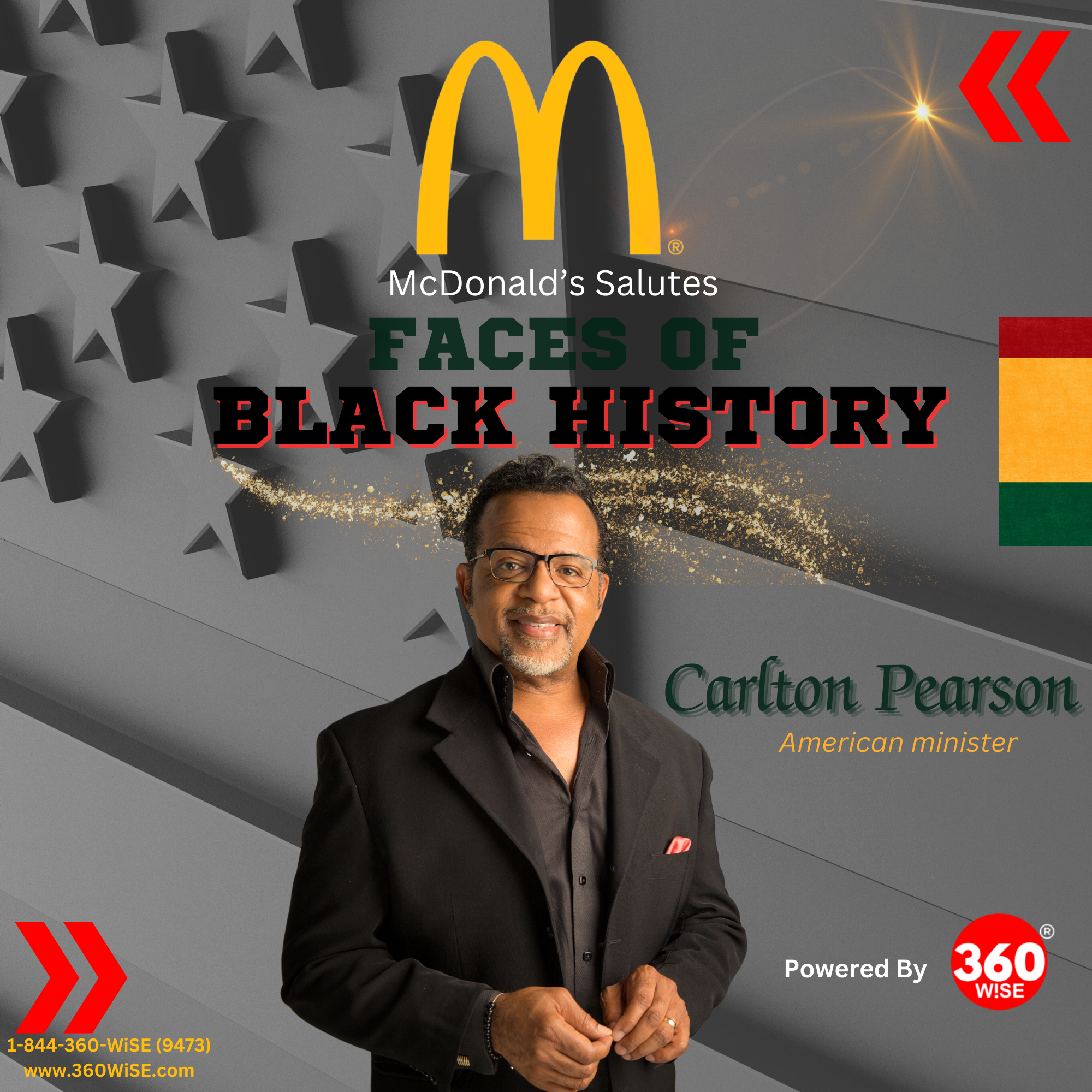
QUICK FACTS
Thank you to the New York Tristate Owner and Operators Association for your continued support.


